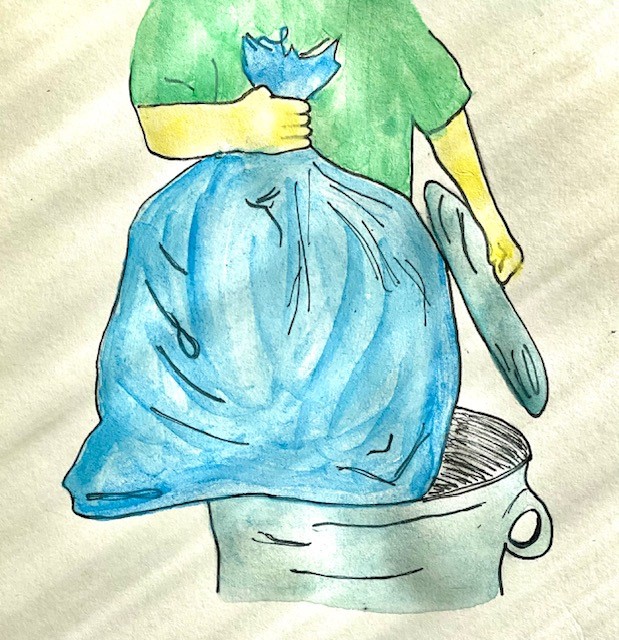I actually love New Year’s, but I hate the idea of filling your screen with yet another perky message full of motivational quips. Because the reality is that New Year’s – like so many things – is completely made up.
An Arbitrary History
Yes, New Year’s resolutions are a time-honored tradition – dating back some 4,000 years to the ancient Babylonians, in fact. And, the evolving history of both the holiday and the resolutions that so often come with them validates their random nature. Which is to say, there’s some wiggle room to leverage the whole idea of a personal growth and transformation season in the way that serves us best.
Ambiguity creates space for choice.
And what do I mean by ambiguity? Well let’s be honest, there are conflicting accounts of when – or if – a new year actually begins. For the Babylonians, New Year’s was in March when the first crops were planted. It was Julius Caesar who moved the date to January, in honor of the two-faced Roman god Janus who was thought to look backwards and forwards simultaneously, offering a resonant choice for both reflecting on the year past and anticipating the year to come. But the ancient Egyptians took the flooding of the Nile and rising of the star Sirius as the mark of the next year while the Chinese looked to the second new moon after the winter solstice to begin theirs.
Then there’s the whole resolution thing, which is problematic at best. Mainly because the true motivation behind these pledges usually involved a formidable fear of divine or political retribution.
The opposite of choice.
Under this pressure, the Babylonians promised to be loyal to their rulers and make good on agreements like paying debts or returning anything they’d borrowed in exchange for staying in their gods’ good graces. Ancient Romans offered full-on religious sacrifices and promised good behavior (whatever that meant at the time), while early Christians took this idea of reflection as an invitation to enumerate – often in scathing, chastising detail – their copious past mistakes, resolving to do better in the future.
Sometimes they sang.
And, all of these oaths were arguably made under varying degrees of duress. Not a real recipe for the kind of success we capture in our motivational posters these days.

So, Stuff It
So, if all this energy and New Year’s proselytization makes you shut down, feel free to set new goals any ol’ time you want, whether it’s when the first crop comes in, a river floods…or you hit your birthday, your favorite time of year, or when your favorite sport starts playing live. Or. All. Of. The. Above.
We are at choice. And our choices are most powerful when they’re aligned with what’s meaningful to us.
New Year’s is arbitrary. Claim your self-improvement and recommitment space whenever and however often you want to. The key is just to do it. Because neuroscience, mountaineers, and experts like Whitney Johnson tell us that if we’re not challenging ourselves, our brains are dying. And if our brains are dying, we’re not fully alive.
So, what if we checked in with ourselves regularly and made enough appropriately ambitious goals to keep us from zoning out from day to day? What if we recommitted to our own fulfillment and vitality whenever we needed it to remind ourselves that we are at choice and we are responsible for our own satisfaction?
What might that look like for you?
Or, Stick It
As in, stick the landing. Take a stand. If you love New Year’s, dive into the massive groundswell of personal improvement energy and commit to doing your January 1 resolutions with excellence.

You probably have years of experience and an inbox full of advice on how to do this; and, it probably involves starting with your Why, breaking your goals into pieces and writing them down, while making them SMART, as well as planning ahead for how to get back on your horse when life gets in the way.
Honestly when I hit December, I love to go back through my calendar week by week for the whole year (yep, I’m that person) to capture all the milestones, accomplishments, challenges, and highlights that I lived through but haven’t reflected on all at once. It’s my way of honoring all the time and energy I put into everything I lived through and capturing what I learned.
Then I think seriously about what I want to take with me from these experiences and what I want to leave behind as the clock rings midnight with extra magical gravitas on December 31, as well as what I want to prioritize in those first few magical days of the fresh new year.
Just because I can choose to believe all this mysticism is true and then align my behavior with that choice to make it true.
Finally, I think of a few milestones in each area of my life – my personal mental, physical, emotional, and inspirational wellness, as well as my life partnership, my parenting, my career, my creativity, and my community – that I’d love to make happen in the upcoming year. I’ll admit, I usually fudge the SMART goal part, though I do sometimes set intended completion dates by month or quarter. But I do check in on them on my birthday in March and when a new academic year begins in August, tracking my progress, recommitting to new substantive actions, and creating new goals as serves me best, depending on what all has come up in the intervening months.
Two of my other favorite practices in this vein are WOOP for anticipating obstacles and planning around them and Daniel Pink on the power of regret – because it’s great to know that if you do have some regret from a lack of resolution follow-through or any other fall from New Year’s grace and optimism, regret is actually a good thing. Plus, there are concrete steps you can take to move forward from it powerfully.
So, I’m Curious
Which camp do you fall in? Pro or Con in the whole New Year’s self-improvement frenzy…or somewhere in-between? And most important, what is it that helps you stay motivated to achieve your goals when something gets in your way?
I’d love to hear your thoughts.

